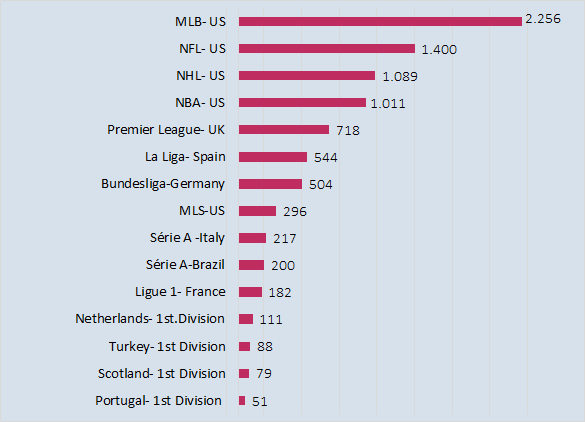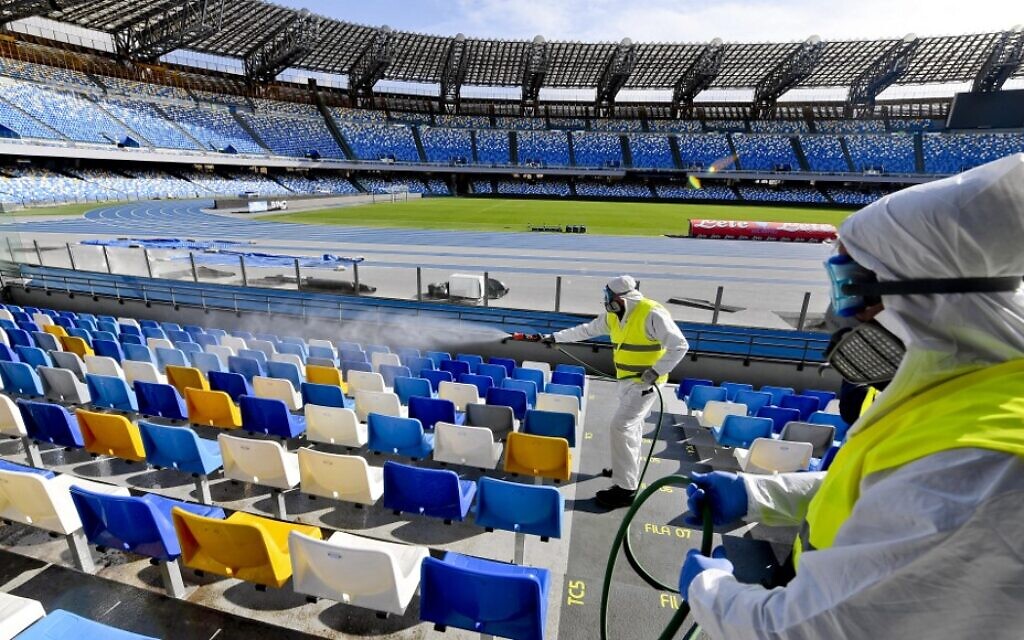The world is witnessing the advance of Coronavirus (COVID-19) and its impacts on a global scale.
The effects of COVID-19, which is already considered a global pandemic by the World Health Organization, are bringing thousands of cases in every part of the world and will be a brutal economic damage.
The negative economic impact of the pandemic and its recessive reflexes scared the financial market. The economic losses will be gigantic, and the stock markets melt daily around the world because of it.
And sport, as an important economic sector, is also suffering strongly as well. We are watching competitions being cancelled or extended. Matches with closed gates and leagues deciding to simply paralyze their activities.
All decisions imply losses. Damages to teams, leagues and players, but also to an entire production chain that is impacted by the high degree of induction to different economic sectors.
We also have the Tokyo Olympic Games, the biggest event on the planet that at this time has not the slightest condition to be held. The Euro has already been amended for 2021.
Rio de Janeiro in 2016 received more than 500,000 foreign tourists, not to mention the millions of domestic tourists, athletes, professionals from different sectors and the press.
In London there were more than 590,000 foreign tourists. At this point the Olympics would be irresponsible.
By Sports Value calculations for every US$1 generated directly with a sports league, you can reach up to US$ 2.5 produced in indirect and economy-induced effects.
The more developed markets are closer to this index. It is the multiplier effect that makes sport a single sector.
The sport’s greatest strength is to gather interest and drag crowds. This impact that can reach 2.5 times the direct revenue is only possible thanks to its dynamism and emotion, which induces the economy and leverages cities and even countries.
When a fan buys a ticket and goes to a sporting show, its impacts go far beyond what it spent on buying the ticket.
There are impacts on an huge production chain, which includes transportation, food, drink, entertainment, product purchase and government taxes.
What is the economic impact of all this?
According to analysis by Sports Value, the global sports market moves US$756 billion annually. This is the direct value moved by industry,
It expands to sectors close to the sport sector, the volume exceeds US$ 840 billion annually.
USA are responsible for US$ 420 billion and Europe for another US$ 250 billion.
China, the fastest growing market in global sport, makes about US$ 150 billion annually and projects or projected its sports industry to reach revenues of US$ 350 billion over five years.
Global Revenues- Sports Industry- US$ billion

Source: Sports Value
The industry’s largest revenue source is sports retail, which accounts for more than 1/3 of the global business.
Professional sport, although not the main source of revenue, is undoubtedly the one that most impacts the production chain, with its matchday revenues, sponsorships, TV rights, players´ transfers and its high media and employment character.
And obviously its indirect and induced impacts.
Thus, a match with closed gates, the cancellation of competitions or calendar changes, directly impact the entire Industry.
The stadia market moves more than US$ 50 billion a year, more than the broadcast rights, which move another $49 billion.
Leagues- Stadium and Arenas Revenues- US$ million

Source: Sports Value
Losses will be inevitable. Projected earnings will be nullified, revenues will plummet, there will be less impact to the sponsors’ business, less tourist flow, ultimately a heavy recession for all those involved with sport.
Because of this, we asked to the economist Monica de Bolle, about how to minimize the inevitable losses of the Sports Industry, which already lives the reality of closed gates and cancellations and suspension of competitions.
According to Mônica de Bolle, “Governments, which is already happening in other countries, will need to give direct support to the sectors most affected by the epidemic. Among them are: sports, entertainment and tourism, both leisure and business.”
She continues: “This government support is done with liquidity injections, facilitated credit, subsidies and tax exemptions.”
Undoubtedly wise lessons that we must understand, assimilate and understand quickly in Brazil, since soon our sports sector must live reality like Asia, Europe and USA.
 English - EN
English - EN
 Português - PT
Português - PT  Español - ES
Español - ES 

